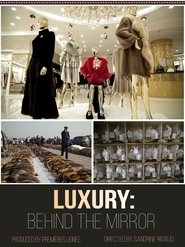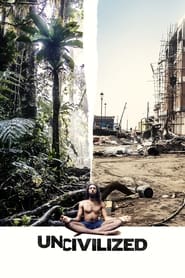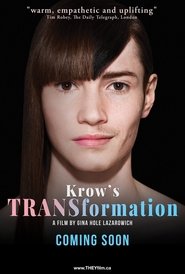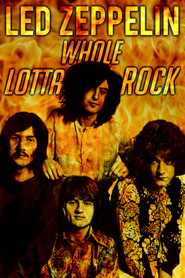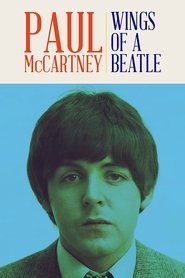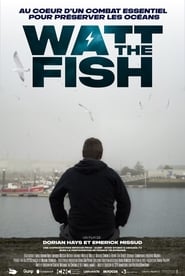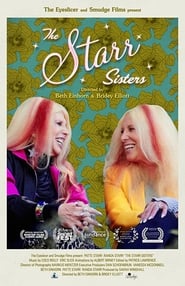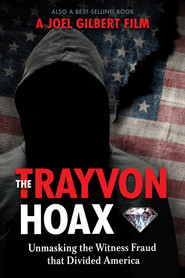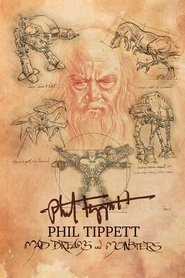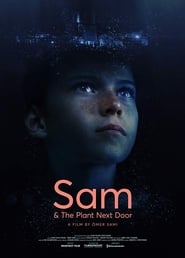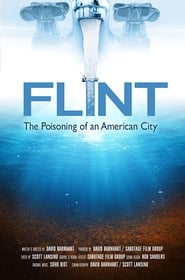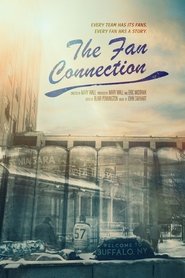New Documentary Movies on Free Services - Page 219
-
Luxury: Behind The Mirror
2019
With their beautiful shopfronts and finely crafted goods, brands like Gucci, Max Mara, Louis Vuitton and Prada are seen as being the height of luxury, conjuring images of master craftsmen finely crafting each item. But - as this investigation reveals - behind the glamorous exterior, all that glitters is not gold. From Haute-Couture at Paris Fashion Week to Chinese and Italian backroom boutiques, LUXURY: BEHIND THE MIRROR investigates the hidden side of luxury. -
Uncivilized
2019
Uncivilized
2019
star 7Disenchanted by the modern world, Michael Lees heads into the forest of Dominica with some basic survival gear, religious texts and a camera. "Why did man ever leave the forest? And what makes for a good life?" Just as he starts to acclimatize to his new life - the unexpected; Category 5 Hurricane Maria, one of the top ten strongest Atlantic hurricanes in history, makes a direct landfall. Michael is caught out in the open in a palm leaf and bamboo hut. With the nation in ruins, the forest destroyed, and essential services knocked out islandwide, the entire country must now return to a past way of life if they hope to survive. -
Krow's TRANSformation
2019
star 1Follow KROW's 3-year transition from teen 'female' model to becoming his true authentic self, not just as a transgender male, but also becoming an androgynous male model. -
Midnight Traveler
2019
Midnight Traveler
2019
star 5.9In 2015, the Taliban put a price on the head of Hassan, a filmmaker, who was forced to flee Afghanistan with his wife and two young daughters. Using their camera phones, the fugitives show first-hand the many dangers refugees face when seeking asylum in a safe place. -
Led Zeppelin | Whole Lotta Rock
2019
Led Zeppelin. One of the most iconic rock bands of all time, and key pioneers of heavy metal. Follow the band through their journey, from formation in 1968, their exciting climb to being one of the most successful and influential bands in history, up until their split following the tragic death of John Bonham in 1980. Led Zeppelin still have a large presence in the music industry today, having sold over 300 million records worldwide. -
Paul McCartney: Wings of a Beatle
2019
From the small clubs of Liverpool to the world stage, Sir Paul McCartney has dedicated his life to the music industry. He has not only dominated the airwaves all over the world with the Beatles, but he has also dominated the charts with Wings and his solo work. But Paul McCartney's life hasn't always been glamorous and has been met with some extremely dark days. Experience the story behind one of the music industries most treasured musical icons. This is Sir Paul McCartney. -
Jim Morrison: The Wild Child
2019
Documentary about the life and career of Jim Morrison, leader of The Doors. -
Watt the Fish
2019
-
The Starr Sisters
2019
The Starr Sisters
2019
Patte and Randa Starr are fun specialists. After growing up in an abusive household set above their father's candy store, they spent their lives fighting to find joy and freedom. Now in their 70s, these sisters do exactly as they please: they live together near the beach, they always have a movie on, and the candy drawer is fully stocked. -
The Trayvon Hoax: Unmasking the Witness Fraud that Divided America
2019
star 8.5Filmmaker Joel Gilbert uncovers the true story of the shooting of Trayvon Martin that divided America. By examining his 750-page phone records, Gilbert discovers the key witness in the trial of George Zimmerman, Rachel Jeantel, was a fraud. Gilbert locates Trayvon's real girlfriend, Diamond Eugene, who actually was on the phone with Trayvon in his final minutes, and exposes the epic judicial hoax. -
Ghost Workers
2019
Ghost Workers
2019
star 8We're at the beginning of an artificial intelligence revolution that promises to change everything. Already, virtual assistants like Siri and Alexa have become a part of our daily life. But in order to run their applications, digital giants like Amazon, Google and Facebook, employ an army of invisible labour. These are disposable workers, paid as little as 10 cents an hour to feed information into computer systems. They receive neither benefits nor contract and normal labor law doesn't apply to them. Whilst millions of men and women are training artificial intelligence for next to nothing, others are being hired and hide out of sight to clean up social networks. We went undercover as one of these web cleaners, working as a content moderator for Facebook. To meet the workers hiding behind your screen, we're taking you to the factory of the future, one of the digital economy's best kept secrets. -
Last Man Fishing
2019
Last Man Fishing
2019
LAST MAN FISHING is a cinematic look at the vastly changing seafood system through the lens of small-scale fishermen across the United States. Narrated by best-selling author Mark Bittman, the film explores the dichotomy between the industrial model and sustainable fishing methods that focus on conservation and quality. -
Narrowsburg
2019
Narrowsburg
2019
star 6The stranger-than-fiction story of a French film producer and her mafioso-turned-actor husband who attempt to turn a tiny town into the “Sundance of the East.” -
Scattering CJ
2019
Scattering CJ
2019
When seemingly happy, travel-infatuated CJ Twomey violently ended his own life at age 20, his family was plunged into unrelenting grief and guilt. In a moment of desperate inspiration, his mother Hallie put out an open call on Facebook, looking only for a handful of travelers who might help fulfill her son’s wish to see the world by scattering some of his ashes in a place of beauty or special meaning. -
Phil Tippett: Mad Dreams and Monsters
2019
star 7.5An in-depth, sad, and beautiful documentary about the stop motion and VFX artist Phil Tippett, a man who changed the landscape of visual effects in film. -
Kecksburg
2019
Kecksburg
2019
star 5A reporter investigates a mysterious crash and uncovers more than an object, but a massive government conspiracy. Inspired by the real life events of December 9, 1965 and one of America's most mysterious UFO incidents. -
Sam & the Plant Next Door
2019
star 7As Britain's largest nuclear power plant rises from the ground next to his home, 11-year-old Sam cannot stop worrying about what will happen to the fish. A documentary film about holding on and letting go, and growing up. -
Flint: The Poisoning of an American City
2019
100,000 people have been poisoned by lead, a lifelong affliction, yet somehow this shocking event has been normalized in the US. "Flint: The Poisoning of an American City" gives voice to the current struggle of city residents and follows the environmental history of the river and how the continued abuse and neglect of city infrastructure and environmental regulations have led to the poisoning of a city. Flint explores the critical question of how this could happen in America, and how this event should serve as a warning for the rest of the country. A recent report found that 5,300 American cities were found to be in violation of federal lead rules, and research published in USA Today detected excessive lead in nearly 2,000 public water systems across all 50 states. This documentary educates but also enrages and seeks to radically change how we view and value water. -
The Fan Connection
2019
The Fan Connection
2019
The Rust Belt city of Buffalo, NY yearns to reclaim its lost pride despite a growing sense of futility and cynicism after decades of decline. When a new owner buys their professional hockey team and promises a championship, Buffalonians see a path to their city's relevance. Throughout this season of unprecedented hopes, we meet a nonagenarian rehabbing from a serious fall, a young man with cerebral palsy determined to learn to drive after doubting himself for years, and a teenager struggling to find her identity while coping with the death of her father. -
Sorokin Trip
2019
Sorokin Trip
2019
star 5.8Documentary about Vladimir Sorokin, one of the most prominent Russian writers.
 Netflix
Netflix
 Amazon Prime Video
Amazon Prime Video
 Apple iTunes
Apple iTunes
 Apple TV Plus
Apple TV Plus
 Disney Plus
Disney Plus
 Google Play Movies
Google Play Movies
 Paramount Plus
Paramount Plus
 Hulu
Hulu
 HBO Max
HBO Max
 YouTube
YouTube
 fuboTV
fuboTV
 Peacock
Peacock
 Peacock Premium
Peacock Premium
 Amazon Video
Amazon Video
 The Roku Channel
The Roku Channel
 AMC+
AMC+
 Kocowa
Kocowa
 Hoopla
Hoopla
 The CW
The CW
 Vudu
Vudu
 Starz
Starz
 Showtime
Showtime
 PBS
PBS
 Pantaflix
Pantaflix
 FXNow
FXNow
 Tubi TV
Tubi TV
 Kanopy
Kanopy
 Comedy Central
Comedy Central
 Crunchyroll
Crunchyroll
 Microsoft Store
Microsoft Store
 Redbox
Redbox
 Sun Nxt
Sun Nxt
 ABC
ABC
 DIRECTV
DIRECTV
 Crackle
Crackle
 Fandor
Fandor
 Plex
Plex
